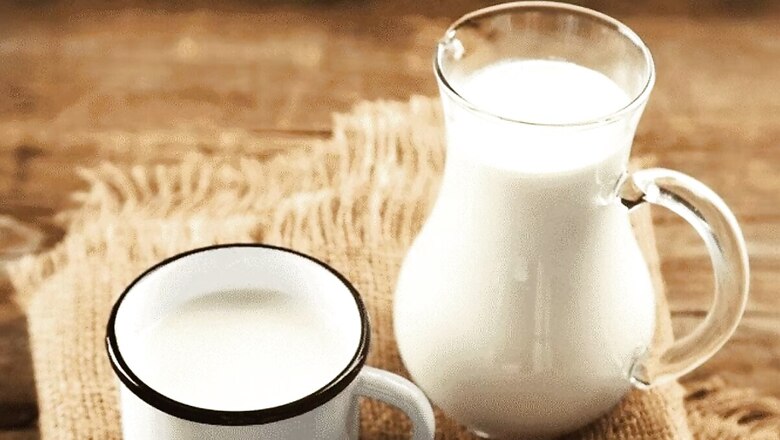
views
Navigating through dairy products can be confusing due to the many types of milk on display. Although milk is a common food with good levels of calcium and vitamins, not all milk is the same. Many products contain preservatives and additives that may affect your health. Therefore, it is important to read labels before making your purchase.
“In today’s dairy landscape, understanding milk labels goes beyond simply selecting between skim, 2%, or whole. It’s about deciphering the often-overlooked additives and preservatives that may lurk within your carton. Regular milk, sourced from various households and collection centers, typically undergoes multi-level processing, compromising its freshness and purity. When it comes to spotting additives and preservatives in milk, several key pointers can help consumers navigate their choices. Beware of unfamiliar ingredients such as carrageenan, artificial flavors, potassium sorbate, or sodium benzoate, which often signal the presence of additives. Additionally, consider the milk’s shelf life; longer durations may indicate the use of preservatives, whereas truly fresh milk naturally sours within a few days. Lastly, trust your senses; fresh milk exudes a pleasant, slightly sweet aroma, while any chemical odor or unusual thickness may indicate the presence of additives,” said Varun Khurana, CEO and Founder, Otipy.
The Importance of Reading Milk Labels
Milk is a household item in many families because it contains calcium, vitamin D, and protein, which are beneficial to our bodies. However, not all milk is the same. Some brands add ingredients that undermine its health benefits. You should check the labels to ensure you do not buy milk with unwanted chemicals or preservation methods, so you drink pure, natural milk only.
Common Additives and Preservatives to Be Aware Of:
Artificial Flavorings and Sweeteners:
Thickeners and Stabilizers:
Aman J Jain, CEO and co-founder, Doodhvale, highlighted, “People often ask me about milk’s ‘hidden’ ingredients and how to detect them. Given the huge choice of products on supermarket shelves, it is important to know what you are actually pouring into your glass. So, let us talk a bit about milk labels and how to recognize dangerous additions to choose the healthiest one for you and your family.”Preservatives
Synthetic Vitamins and Minerals
Common synthetic vitamins and minerals include Vitamin A Palmitate, Vitamin D2 or D3 (Cholecalciferol), Calcium Carbonate, or Calcium Citrate, and Folic Acid. You can also examine the nutritional information for any non-standardized values.
Tips for Choosing the Healthiest Milk
Opt for Organic
Organic milk tends not to contain harmful chemicals or preservatives. It doesn’t have antibiotics or artificial hormones either.
Look for Farm-to-Home or Natural Products
Milk that is single-source or directly traceable to the farm is generally better. It has lower chances of adulteration in the supply chain.
Look for Authentic Lab Test Reports
Some companies have established modern laboratories and perform thorough testing of milk to check for adulterants and impurities. Seek lab test reports of the products.
Choose Milk That Suits Your Family’s Needs
Depending on dietary constraints, choose the relevant milk that suits your family. Multiple milk types include cow or buffalo milk, full-fat or low-fat milk, etc.
Be Inquisitive, Be Smart
Natural is not always synonymous with health. Similarly, all packaged products are not always healthy. Even if the packaging claims that it’s natural, always examine the list of ingredients, verify the source, and check reviews before making a purchase decision.
Decoding milk labels may appear complicated, but with a little knowledge, you can make informed decisions that will benefit your health. By avoiding harmful additives and preservatives, you ensure the purest, most nutritious milk for yourself and your family. Remember, the best milk is often the simplest—free from unnecessary additives but rich in natural goodness. Stay well-informed when making choices about what you eat to maintain your health.
















Comments
0 comment